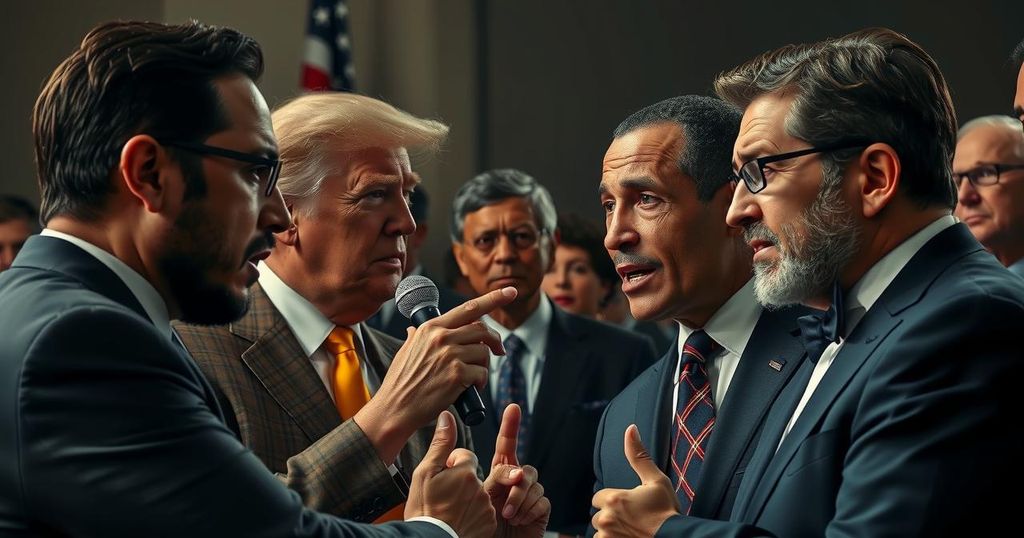Alex Jones has claimed that the Democratic Party is scheming to incite a race war, discussing such tactics with JD Vance. He suggests that Democrats are manipulating low-information voters and amplifying existing societal tensions to provoke civil unrest ahead of elections. Jones asserts that this approach is systematic, rooted in a history of racial incidents and engages a broad narrative that demands accountability and vigilance from the electorate.
In a recent broadcast, Alex Jones asserted that the Democratic Party intends to instigate a race war, a claim he believes will become increasingly prevalent leading up to the next election. He argues that Democrats are targeting less informed voters to create civil unrest, framing it as a necessary tactical move. Jones noted discussions with JD Vance regarding these themes, emphasizing the idea that the Democrats have a plan to provoke such discord, which he alleges has roots in previous racial tensions amplified by high-profile incidents, such as the deaths of Trayvon Martin and George Floyd. Jones recounted how political operatives, including Democratic strategist James Carville, are purportedly preparing the public through provocative dialogue about potential civil conflict. He described his perspective of the political landscape as one requiring careful vigilance, suggesting that the formulation of these concepts represents a calculated strategy rather than mere speculation. Additionally, he expressed concern over the possibility of a manufactured crisis in which the media exerts undue influence to escalate division, leading to violence and unrest, which he likened to a football coach anticipating the opposing team’s tactics.
The commentary by Alex Jones brings to light the ongoing discourse surrounding political division in the United States. This discussion often includes allegations of manipulation by political elites aiming to exploit racial tensions for electoral gain. Historically, themes of race and civil unrest have played pivotal roles in American politics, particularly in the context of police violence and systemic racism. The rhetoric used by Jones and similar commentators reflects broader anxieties regarding societal fragmentation and the potential for escalating violence in the face of contentious electoral politics.
In conclusion, Alex Jones’s assertions regarding the intentions of the Democratic Party to provoke a race war highlight the fraught nature of contemporary political discourse in America. His claims centralize fears of civil unrest rooted in racial divides, pointing to a broader pattern of fear-based narratives that emerge during electoral cycles. Such rhetoric underscores the urgent need for informed dialogue that bridges divides rather than exacerbating them, ultimately challenging the narrative of inevitable conflict that figures like Jones promote.
Original Source: www.mediamatters.org






